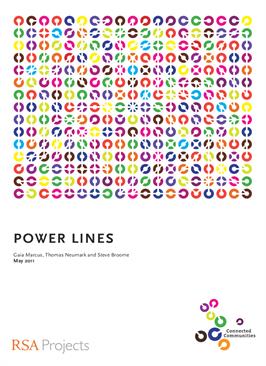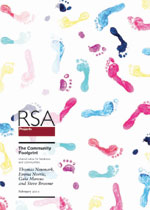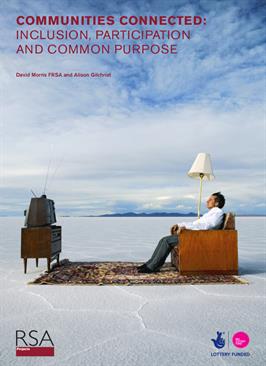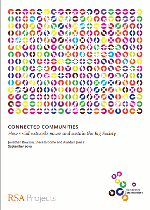The Coalition Government’s vision for empowered neighbourhoods has focused mainly on engaging members of the public in the delivery of public services. Power Lines argues that to increase access to local power and enable individuals to make the changes they want to see for themselves and their communities, we must first nurture and promote overall social connections and neighbourliness.
The reasons why some people don’t engage with their communities or the decisions that affect them are most often structural. The unemployed, retirees and those living in areas with weaker social networks all tend to have fewer local connections. The government’s vision of neighbourhoods shaping their own destinies, with its focus on ‘active’ citizens with strong local networks, has failed to capture these groups, leaving them at risk of isolation.
Yet it is just such groups who should be at the centre of efforts to build more empowered communities by fostering denser and more varied connections. Indeed, our research indicates that those people with poor community connections show an interest in being able to shape their networks and do connect more when given the appropriate tools.
Fostering support and exchange through informal connections may be an important way to achieve outcomes that many public services aim for. Central government should play a role in supporting those groups at greatest risk of isolation and is ideally placed to establish systems for monitoring the impact of such initiatives.
Building on research presented in the RSA’s 2010 report, Connected Communities: How social networks power and sustain the Big Society, Power Lines recommends that:
-
Agencies seeking to develop empowered communities should measure success based on the extent to which they have contributed to the creation of richer, stronger, more interconnected social networks.
-
Local and national initiatives aimed at empowering communities should give extra attention and support to those who are most at risk of being isolated.
-
Public policy has much to gain in helping to foster broad sociability and connections, whilst leaving specific details to the people and communities involved.
pdf 1.8 MB
Contributors


To correct this error:
- Ensure that you have a valid license file for the site configuration.
- Store the license file in the application directory.
Related reports
-
The Community Footprint: shared value for business and communities
Businesses should act as ‘community hubs’, helping promote social interaction among their customers and developing local action plans to create happier, more resilient communities.
-
Communities Connected: Inclusion, Participation and Common Purpose
The government's planned reform of the health care system does nothing to combat loneliness and isolation amongst people who are most in need of support.
-
Connected Communities: How social networks power and sustain the Big Society
A new approach is needed to develop community regeneration and social networks are the key.




Be the first to write a comment
Comments
Please login to post a comment or reply
Don't have an account? Click here to register.